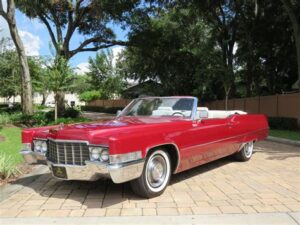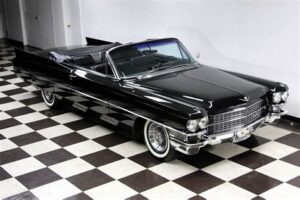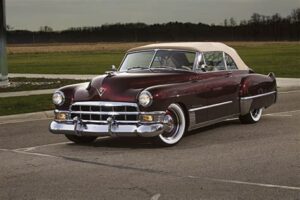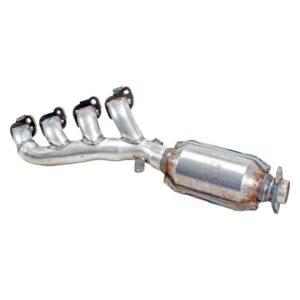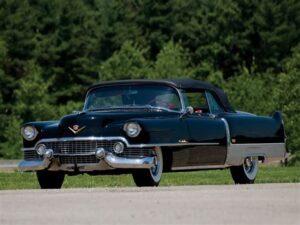When it comes to ensuring optimal performance and longevity of your 2000 Honda Accord, few components are as crucial as the catalytic converter. This essential part not only helps manage emissions but also plays a pivotal role in your vehicle’s overall efficiency. In this article, we will delve into the importance of the catalytic converter, providing insights on how to identify potential failures and the steps needed for a successful replacement. Additionally, we will share expert tips for maintaining your Accord’s catalytic converter, as well as the benefits of upgrading to a high-performance unit. Whether you’re a seasoned car enthusiast or a casual driver, understanding these aspects will empower you to keep your 2000 Honda Accord running smoothly and efficiently.
Understanding The Importance Of Cadillac Converters In A 2000 Honda
The 2000 Honda Accord’s Cadillac converter plays a crucial role in reducing harmful emissions that contribute to air pollution. This component is designed to convert the toxic gases produced during the combustion process into less harmful substances before they are released into the atmosphere. By doing so, the Cadillac converter helps to meet environmental regulations and enhances the overall efficiency of the vehicle.
Another significant aspect of the Cadillac converter is its contribution to the engine’s performance. A properly functioning converter aids in maintaining the optimal air-fuel mixture, which is essential for efficient engine operation. When the converter becomes clogged or damaged, it can lead to performance issues, such as reduced acceleration and poor fuel economy, making it essential for owners of 2000 Honda models to ensure theirs is in good working condition.
Additionally, a failing Cadillac converter can trigger warning lights on the dashboard and lead to inspections failing due to emissions standards. Addressing issues early can prevent further damages and costly repairs. Therefore, understanding the importance of the Cadillac converter and recognizing its impact on both performance and environmental factors is critical for every 2000 Honda owner.
How To Identify A Failing Cadillac Converter In Your 2000 Honda
Identifying a failing cadillac converter in your 2000 honda is crucial to maintain optimal performance and avoid costly repairs. Here are some key indicators to look for:
| Symptoms | Description |
|---|---|
| Check Engine Light | If the check engine light illuminates, it may indicate an issue with the cadillac converter. |
| Loss of Power | A decrease in acceleration or overall power could signal converter dysfunction. |
| Unusual Noises | Sounds like rattling or grinding noises can indicate internal damage. |
| Overheating | Excessive heat from the converter can lead to further engine issues. |
| Emissions Test Failure | Failing an emissions test is a strong sign that your converter isn’t functioning properly. |
When you notice any of these symptoms, it’s advisable to have your 2000 honda inspected by a qualified mechanic. Early detection of converter issues can save you time and money in the long run.
Steps To Replace The Cadillac Converter In A 2000 Honda Accord
Replacing the Cadillac converter in a 2000 Honda Accord can enhance your vehicle’s performance and efficiency. Follow these steps to ensure a successful replacement:
1. Preparation and Tools Required
– Gather the necessary tools:
– Jack and jack stands
– Wrench set
– Socket set
– O2 sensor socket (if equipped)
– Safety goggles and gloves
– New Cadillac converter
– Exhaust pipe sealant
2. Safety First
– Ensure your vehicle is parked on a level surface.
– Wear safety goggles and gloves to protect yourself from hazardous materials.
3. Lift the Vehicle
– Use the jack to raise the front of the vehicle and secure it with jack stands for safety.
4. Locate the Cadillac Converter
– The Cadillac converter is typically located between the exhaust manifold and the muffler. Identify its position carefully.
5. Remove Exhaust Components
– Using the socket set, remove the bolts securing the exhaust pipe to the Cadillac converter.
– If your model has O2 sensors, disconnect them gently with the O2 sensor socket.
6. Remove the Old Cadillac Converter
– Once the exhaust components are disconnected, remove the old Cadillac converter from its mounting brackets.
7. Install the New Cadillac Converter
– Position the new Cadillac converter in place and secure it with the mounting bolts.
– Be sure to follow the manufacturer’s installation guidelines.
8. Reconnect Exhaust Components
– Reattach the exhaust pipe and O2 sensors, ensuring all connections are tight and leak-free.
9. Check for Leaks
– After installation, start your vehicle and check for exhaust leaks, particularly around the newly installed Cadillac converter.
10. Lower the Vehicle
– Once satisfied that everything is secure and leak-free, carefully lower the vehicle off the jack stands.
By following these steps carefully, you can successfully replace the Cadillac converter in your 2000 Honda Accord, leading to better engine efficiency and reduced emissions.
Tips For Maintaining Your 2000 Honda Accord’s Cadillac Converter
Maintaining the 2000 Honda Accord’s Cadillac converter is crucial for the vehicle’s performance and longevity. Here are some effective tips to ensure your Cadillac converter remains in optimal condition:
- Regular Engine Maintenance: Conduct regular tune-ups and oil changes. A well-maintained engine runs efficiently and produces less harmful emissions, which helps preserve the Cadillac converter.
- Monitor Exhaust Leaks: Check for any exhaust leaks regularly, as they can cause the Cadillac converter to overheat. Promptly repair any leaks to avoid damage.
- Use High-Quality Fuel: Utilize fuel that meets the manufacturer’s specifications. Low-quality fuel can lead to deposits forming in the Cadillac converter, reducing its efficiency.
- Avoid Short Trips: Frequent short trips may not allow the engine to reach the optimal temperature, leading to incomplete combustion and excess carbon build-up in the Cadillac converter.
- Drive Smoothly: Avoid aggressive driving, as sudden accelerations and hard braking can put unnecessary stress on the Cadillac converter.
- Check Engine Light: If the check engine light turns on, have your vehicle diagnosed immediately. Ignoring this warning can lead to more severe issues with the Cadillac converter.
- Use Catalytic Converter Cleaners: Occasionally using catalytic converter cleaners can help remove deposits and sludge, keeping the converter functioning efficiently.
By following these maintenance tips, you can ensure the longevity and performance of your 2000 Honda Accord’s Cadillac converter, ultimately enhancing your vehicle’s overall health and efficiency.
The Benefits Of Upgrading The Cadillac Converter On A 2000 Honda
Upgrading the cadillac converter on a 2000 Honda Accord can offer a variety of significant advantages that enhance both performance and compliance with environmental regulations. Below are some key benefits of making this upgrade:
| Benefit | Description |
|---|---|
| Improved Exhaust Flow | Upgraded cadillac converters often provide better flow characteristics compared to factory models, which can lead to enhanced engine performance and efficiency. |
| Increased Horsepower | By reducing back pressure in the exhaust system, an upgraded converter can contribute to an increase in horsepower and torque. |
| Enhanced Fuel Efficiency | A more efficient converter allows the engine to operate more smoothly, which can result in improved fuel economy. |
| Compliance with Emission Standards | Many aftermarket cadillac converters are designed to meet or exceed emission regulations, helping you to remain compliant and avoid potential fines. |
| Longer Lifespan | Quality aftermarket converters tend to be built with more durable materials, resulting in a longer operational life compared to stock converters. |
In summary, upgrading the cadillac converter on a 2000 Honda Accord not only boosts performance but also contributes to better fuel economy and compliance with emissions standards. These upgrades are a worthwhile investment for improving your vehicle’s overall efficiency and reliability.
Frequently Asked Questions
What is a catalytic converter and why is it important?
A catalytic converter is an essential component of a vehicle’s exhaust system that reduces harmful emissions. It helps convert toxic pollutants from the engine into less harmful gases, thus improving air quality.
What are the signs that my 2000 Honda Accord’s catalytic converter may be failing?
Common signs of a failing catalytic converter include poor acceleration, a decrease in fuel efficiency, a check engine light, and unusual noises from the exhaust system. If you notice any of these symptoms, it’s advisable to have it inspected.
How much does it typically cost to replace a catalytic converter on a 2000 Honda Accord?
The cost of replacing a catalytic converter on a 2000 Honda Accord can vary widely, typically ranging from $500 to $2,500, depending on whether you choose an aftermarket part or an OEM part, as well as labor costs.
Can I drive my 2000 Honda Accord if the catalytic converter is damaged?
While you can drive a vehicle with a damaged catalytic converter, it is not advisable. A malfunctioning catalytic converter can lead to further engine damage and could also result in failing emissions tests.
Is it possible to clean a clogged catalytic converter, or does it need to be replaced?
In some cases, a clogged catalytic converter can be cleaned, but if the damage is severe or if the converter has reached the end of its lifespan, replacement will be necessary.
Are there performance aftermarket catalytic converters available for the 2000 Honda Accord?
Yes, there are performance aftermarket catalytic converters available for the 2000 Honda Accord. These may offer improved exhaust flow and performance, but it’s important to ensure they comply with local emissions regulations.
What should I do if my check engine light is on related to the catalytic converter?
If your check engine light is on, it’s best to have your vehicle diagnosed by a professional mechanic. They can run a diagnostic test to determine if the catalytic converter is the source of the issue and recommend the appropriate course of action.
